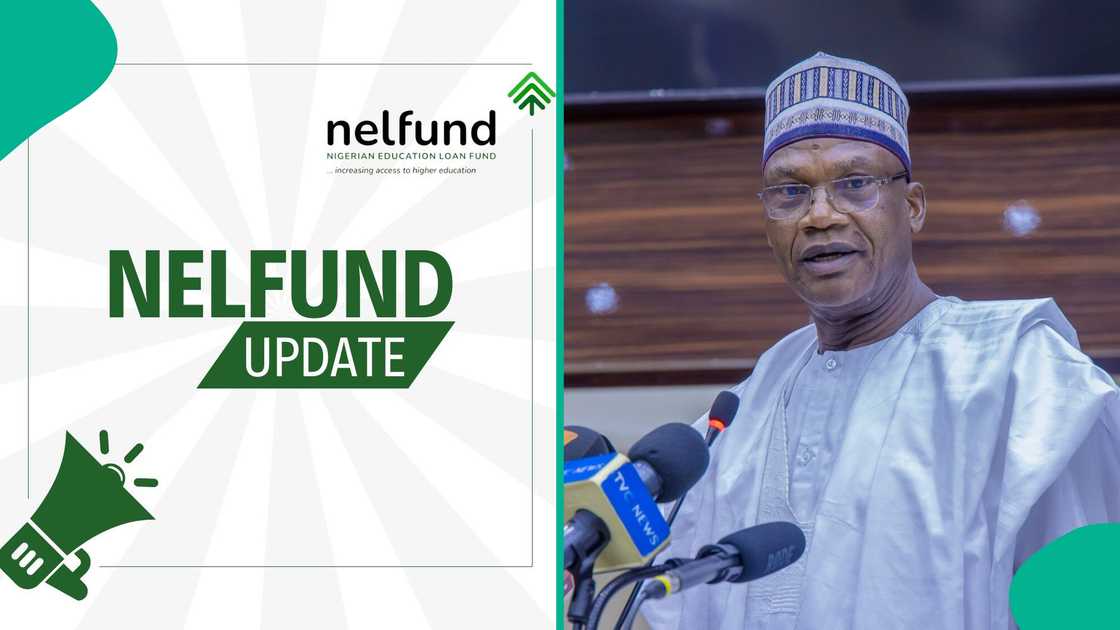Data from NELFUND Student Loan Registration Shows High Disparities in Demand Across Regions
NELFUND’s latest data reveals significant regional disparities in student loan demand across Nigeria, with northern states showing higher application rates
Kano leads with over 17,000 applicants, while Oyo exhibits a unique trend of more applicants than registered students
The data portrays the crucial role of NELFUND in facilitating access to education, highlighting the varying financial needs of students across different regions
The Nigerian Education Loan Fund (NELFUND) has released its latest data on student loan registrations, highlighting significant demand across various states in Nigeria.
The data, shared on Friday, August 30, provides a detailed breakdown of the number of students who applied for loans after registering, the total number of registered students, and the respective states.

Source: Twitter
PAY ATTENTION: Click “See First” under the “Following” tab to see Legit.ng News on your Facebook News Feed!
Key findings
The data reveals that Kano leads with the highest number of applicants, with 17,122 students applying after registering out of 20,814 registered students. Borno follows with 13,798 applicants from 16,353 registered students, and Benue with 11,754 applicants from 16,127 registered students.
Interestingly, Oyo shows a unique trend with 14,086 applicants despite having only 8,990 registered students, indicating a high level of interest but lower registration turnout. Similarly, Kaduna and Katsina also show substantial numbers, with 10,380 and 10,952 applicants, respectively, from 13,873 and 13,538 registered students.
The Federal Capital Territory (FCT) Abuja, however, has the lowest figures with 676 applicants from 894 registered students.
Increasing demand
The data shows growing demand for educational loans across Nigeria, reflecting students' increasing need for financial support to pursue higher education.
Also, it also presents a significant regional disparity in the demand for student loans. Northern states like Kano, Borno, and Benue show a higher number of applicants, reflecting a greater need for financial support in these regions. In contrast, southern states, including Lagos and Anambra, exhibit lower demand, which could be attributed to various socio-economic factors.

Read also
Kidnapping crisis: Report uncovers how much Nigeria spent on ransoms in 1 year, details emerge
See the data from NELFUND below:
Student loan Scheme: Double-edged sword?
In a recent interview with Legit.ng, Chidi Chinedu, a public affairs analyst and education enthusiast, shared his insights on the newly introduced student loan.
Chinedu described the initiative as a “welcome development,” acknowledging the financial struggles many parents face in paying for their children’s higher education.
He told Legit.ng, “There are indeed many parents who cannot afford to pay the fees of their children in higher institutions, however subsidized the fees are, given the level of poverty in the country.”
Despite his initial praise, Chinedu expressed significant concerns about the long-term sustainability of the student loan scheme. He highlighted two primary issues: the high rate of non-repayment of loans and the non-interest nature of the loans.
He also emphasised the importance of considering these concerns within the broader economic context. “We are dealing with the combined problem of poor government revenue, cost of living crisis, and low purchasing power; and if the current policies of the government are maintained, this may well continue into the long-term. With the high rates of unemployment, and poorly remunerated employment, how does the government expect to recover the disbursed loans? I fear that these disbursements may go the way of many wasteful government programmes,” he added.
Root cause of economic crisis crucial
Chinedu argued that addressing the root causes of the economic crisis is crucial for the success of the loan scheme:
“We cannot loan ourselves out of a cost of living crisis we created. We have to fix the causative factors and make access to true economic empowerment— good-paying jobs— possible. It is important for the government to pay careful attention to climes where it borrows policies from. The student loan programme in the US, for instance, has, to the extent that it has worked, been successful because there exists a strong public data management system, low unemployment, system-enabled capacity to repay, and meaningful return on loan-funded education. Still, the US system is run by private entities and is interest-based."
Finally, he pointed out that the loan scheme might not have been necessary if the government had not allowed fee hikes in public schools due to its inflation-escalating policies.

Read also
NDIC to liquidate more banks, lists names, locations as Heritage Bank customers get payment
“As some have argued, the loan scheme, as it is currently structured, may not have been necessary if the government did not open the door to fee hikes by public schools due to its inflation-escalating policies. So, again, the triggers should be addressed so that we don’t find ourselves struggling to block countless leakages in a sinking ship we crashed against an iceberg,” he concluded.
Understanding data armed robbery cases
Meanwhile, Legit.ng earlier reported that Nigeria is grappling with a surge in armed robbery cases.
Data from the Ministry of Police Affairs for 2022 and 2023, as shown by Statisense, reveals a disturbing trend.
PAY ATTENTION: Donate to Legit Charity on Patreon. Your support matters!
Source: Legit.ng




